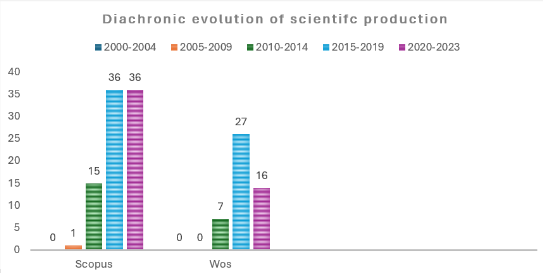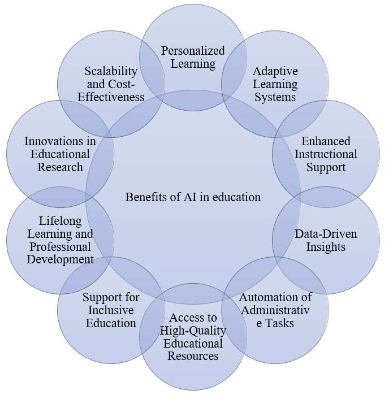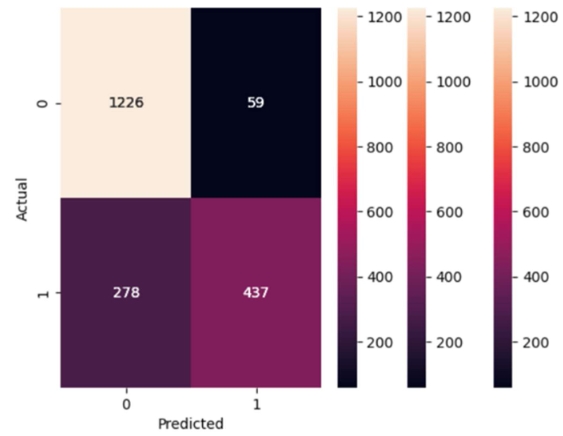Caught in the rye: Novice teachers’ journeys of self-discovery and identity formation
Abstract
This qualitative study explores the experiences of novice teachers as they navigate the complexities of identity formation and self-discovery during their early careers. Grounded in Transformative Learning Theory (TLT) and themes from J.D. Salinger’s The Catcher in the Rye, the research employs thematic analysis of interviews and reflective notes from eight novice teachers to uncover their emotional and professional struggles. Four key themes emerged: Alienation, identity and self-discovery, rejection of societal norms, and the search for genuine connections. Findings indicate that feelings of alienation often undermine teachers’ confidence and motivation, while self-discovery fosters resilience and adaptability. The rejection of standardized norms prompts educators to seek more meaningful teaching practices, enhancing student engagement and empowerment. Furthermore, the study highlights the significance of building authentic relationships with colleagues and students in creating a supportive teaching environment. This research underscores the need for systemic support, including mentorship and collaborative practices, to improve novice teacher retention rates. By linking literary themes to educational experiences, this study advocates for the integration of narrative inquiry in teacher training programs, ultimately contributing to a deeper understanding of the challenges faced by new teachers.
References
[1]Gibbons S. A critical period in becoming a teacher: How novice teachers develop their professional identity. Journal of Education and Culture Studies. 2020; 4(4): p66. https://doi.org/10.22158/jecs.v4n4p66
[2]Huang J, Wang Y, Teng F. Understanding changes in teacher beliefs and identity formation: A case study of three novice teachers in Hong Kong. Teaching Education. 2019; 32(2): 193–207. https://doi.org/10.1080/10476210.2019.1693535
[3]Weni TMM. PROFESSIONAL IDENTITY FORMATION OF FOUR NOVICE ENGLISH TEACHERS. Magister Scientiae. 2021; 49(1): 52–65. https://doi.org/10.33508/mgs.v49i1.3098
[4]McLean N, Price L. Identity formation among novice academic teachers—a longitudinal study. Studies in Higher Education. 2017; 44(6): 990–1003. https://doi.org/10.1080/03075079.2017.1405254
[5]Alifia U, Praman RP, Revina S. A Policy Lens on Becoming a Teacher: A longitudinal diary study of Novice teacher professional identity formation in Indonesia. Available online: https://doi.org/10.35489/bsg-rise-wp_2022/096 (accessed on 5 September 2024).
[6]Stenberg K, Maaranen K. A novice teachers teacher identity construction during the first year of teaching: A case study from a dialogical self-perspective. Learning Culture and Social Interaction. 2020; 28: 100479. https://doi.org/10.1016/j.lcsi.2020.100479
[7]Hanifah M, Damayanti IL, Muslim AB. INDONESIAN ENGLISH NOVICE TEACHERS’ IDENTITY CONSTRUCTIONS AND THEIR TEACHING PRACTICES. International Journal of Education. 2022.
[8]Pravita AR, Kuswandono P. Exploring English novice teachers’ identity transformation influenced by community of practice. DOAJ (DOAJ: Directory of Open Access Journals). 2021. https://doi.org/10.24256/ideas.v9i1.1865
[9]Akcor G, Savasci M. A Review of Challenges and Recommendations for Novice EFL Teachers in Turkey. Novitas-ROYAL (Research on Youth and Language). 2020; 14(2): 16–37.
[10]Gan L, Lam R. A tale of two teachers: Construction of novice university English Teachers’ assessment identity. Chinese Journal of Applied Linguistics. 2023; 46(2): 219–236. https://doi.org/10.1515/cjal-2023-0205
[11]Macalister J. Context, communities, and conflict: Novice language teachers in Malaysia. TESOL Quarterly. 2022; 57(1): 64–89. https://doi.org/10.1002/tesq.3122
[12]Tajeddin Z, Bolouri M. Decision making in English Language teaching: Unpacking novice teachers’ pedagogical reasoning. Language Teaching Research Quarterly. 2023; 33: 115–131. https://doi.org/10.32038/ltrq.2023.33.06
[13]Zorba MG. Exploring Novice English Teachers’ Professional Development: Insights from the Turkish Context. International Journal of Curriculum and Instruction. 2023; 15(1): 446–466.
[14]Seyri H, Nazari M. From practicum to the second year of teaching: Examining novice teacher identity reconstruction. Cambridge Journal of Education. 2022; 53(1): 43–62. https://doi.org/10.1080/0305764x.2022.2069227
[15]Goktepe FT, Kunt N. “I’ll do it in my own class”: Novice language teacher identity construction in Turkey. Asia Pacific Journal of Education. 2022; 41(3): 472–487. https://doi.org/10.1080/02188791.2020.1815648
[16]Nazari M, De Costa PI, Karimpour S. Novice language teacher identity construction: Similarities, differences, and beyond. Educational Linguistics. 2023; 2(1): 1–28. https://doi.org/10.1515/eduling-2022-0013
[17]Derakhshan A, Nazari M. “I am Fed Up with the Criticisms”: Examining the Role of Emotional Critical Incidents in a Novice Teacher’s Identity Construction. The Asia-Pacific Education Researcher. 2022; 32(4): 449–458. https://doi.org/10.1007/s40299-022-00666-1
[18]Atai MR, Nazari M, Hamidi F. Novice EAP teacher identity construction: A qualitative study from Iran. Journal of English for Academic Purposes. 2022; 59: 101162. https://doi.org/10.1016/j.jeap.2022.101162
[19]Lomi ANK, Mbato CL. Struggles and Strategies in Constructing Professional Identity: The First-Year Teaching Experiences of Indonesian EFL Novice Teachers. Journal of English Education and Teaching. 2020; 4(1): 1–19.
[20]Mezirow J. Transformative dimensions of Adult Learning. Jossey-Bass. 1911.
[21]Van Manen M. Phenomenology of practice: Meaning-Giving Methods in Phenomenological Research and Writing. Routledge. 2016.
[22]Creswell JW, Poth CN. Qualitative inquiry and research design: Choosing Among Five Approaches. SAGE Publications. 2016.
[23]Braun V, Clarke V. Using thematic analysis in psychology. Qualitative research in psychology. 2006; 3(2): 77–101.
[24]Sela O, Harel M. ‘You have to prove yourself, initiate projects, be active’: The role of novice teachers in their own induction process. Professional Development in Education. 2018; 45(2): 190–204. https://doi.org/10.1080/19415257.2018.1441173
[25]Lap TQ, Ngoc TD, Thao LT. Novice Teachers’ Professional Identity Reconstruction. International Journal of Educational Methodology. 2022; 8(3): 449–464.
Copyright (c) 2024 Pourya Javahery

This work is licensed under a Creative Commons Attribution 4.0 International License.









